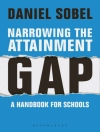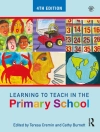This short, easy to read introduction to grounded theory will help you to employ the method in your research project. Uwe Flick discusses each stage of the process of doing grounded theory research, including formulating a research question through analysis of data, theoretical sampling, sorting and saturation, data collection, coding and forming theories from data.
قائمة المحتويات
1. Background: Approaches and philosophies of grounded theory
2. Doing grounded theory: Key components, process, and elements
3. Getting in: Data collection in grounded theory
4. Grounded theory coding: Ways and versions
5. Going ahead: Recent developments in data analysis
6. Going beyond: Theoretical sampling, sorting, and saturation
7. Output: Writing and quality in grounded theory
8. Advancing: Research design in grounded theory
9. Becoming systematic: Triangulation in grounded theory
10. Rounding Up: Doing perspectivist grounded theory
عن المؤلف
Uwe Flick is Senior Professor of Qualitative Research in Social Science and Education at the Freie Universität Berlin, Germany. He is a trained psychologist and sociologist and received his Ph D from the Freie Universität Berlin in 1988 and his Habilitation from the Technical University Berlin in 1994. He has been Professor of Qualitative Research at Alice Salomon University of Applied Sciences in Berlin, Germany and at the University of Vienna, Austria. Previously, he was Adjunct Professor at the Memorial University of Newfoundland in St. John’s, Canada; a Lecturer in research methodology at the Freie Universität Berlin; a Reader and Assistant Professor in qualitative methods and evaluation at the Technical University Berlin; and Associate Professor and Head of the Department of Medical Sociology at the Hannover Medical School. He has held visiting appointments at the London School of Economics, the Ecole des Hautes Etudes en Sciences Sociales in Paris, Cambridge University (UK), Memorial University of St John’s (Canada), University of Lisbon (Portugal), Institute of Higher Studies in Vienna, in Italy and Sweden, and the School of Psychology at Massey University, Auckland (New Zealand). His main research interests are qualitative methods, social representations in the fields of individual and public health, vulnerability in fields like youth homelessness or (forced) migration and chronical illness in everyday live. He is the editor of The SAGE Handbook of Qualitative Research Design (2 Vols.; Sage 2022). The SAGE Handbook of Qualitative Data Analysis (Sage, 2014), The SAGE Qualitative Research Kit (Sage, 2nd edn, 2018), A Companion to Qualitative Research (Sage, 2004), Psychology of the Social (Cambridge University Press, 1998). His most recent publications are the seventh edition of An Introduction to Qualitative Research (Sage, 2023), Doing Grounded Theory (Sage, 2018), Doing Triangulation and Mixed Methods (Sage, 2018), The SAGE Handbook of Qualitative Data Collection (editor, Sage, 2018), the third edition of Introducing Research Methodology – Thinking Your Way through Your Research Project (Sage, 2020) and Doing Interview Research – The Essential How To Guide (Sage 2022). In 2019, Uwe Flick received the Lifetime Award in Qualitative Inquiry at the 15th International Congress of Qualitative Inquiry.












